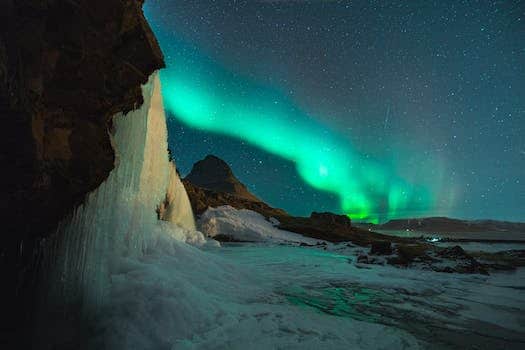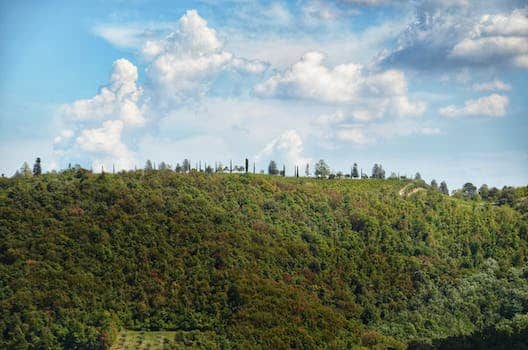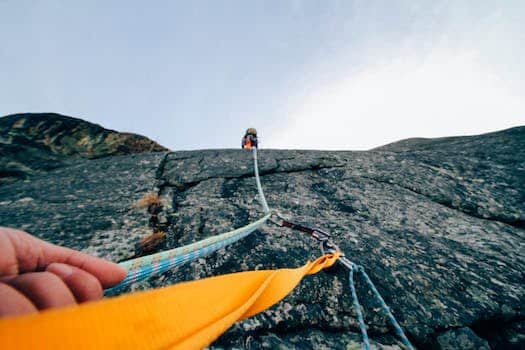Nature exploration is a captivating journey that allows us to connect with the natural world and discover its wonders. From lush forests to serene lakes, there is an abundance of beauty and tranquility waiting to be explored. In this ultimate guide, we will delve into the art of nature exploration, providing valuable tips, insights, and recommendations to help you make the most out of your outdoor adventures. Whether you are a seasoned explorer or a novice seeking to embark on your first expedition, this guide will equip you with the knowledge and inspiration needed to embrace the magic of nature and create unforgettable experiences.
- 1. The Benefits of Nature Exploration
- 1.1. Physical Health Benefits
- 1.2. Mental Health Benefits
- 1.3. Educational Benefits
- 1.4. Social Benefits
- 1.5. Creativity Benefits
- 2. Tips for Exploring Nature
- 2.1. Choose the Right Location
- 2.2. Dress Appropriately
- 2.3. Bring Essential Supplies
- 2.4. Follow Safety Guidelines
- 2.5. Leave No Trace
- 3. Activities for Nature Exploration
- 3.1. Hiking and Trekking
- 3.2. Bird Watching
- 3.3. Photography
- 3.4. Camping
- 3.5. Nature Journaling
1. The Benefits of Nature Exploration
Nature exploration offers numerous benefits for individuals of all ages. Engaging in outdoor activities allows us to connect with the natural world and experience its beauty firsthand. It provides an opportunity to escape the hustle and bustle of daily life, offering a sense of peace and tranquility. Moreover, exploring nature promotes physical fitness and mental well-being. Hiking through lush forests, climbing mountains, or simply taking a leisurely walk along a scenic trail can improve cardiovascular health, increase endurance, and boost overall strength. Additionally, spending time in nature has been proven to reduce stress levels, alleviate symptoms of anxiety and depression, and enhance cognitive function. The sights, sounds, and smells of the great outdoors stimulate our senses and help us rejuvenate our mind, body, and soul. Nature exploration also fosters a sense of environmental awareness and a deeper appreciation for the natural world. It allows us to learn about different ecosystems, observe diverse wildlife, and understand the importance of conservation. By immersing ourselves in nature, we become more conscious of our impact on the environment and are inspired to take action to protect it. Overall, nature exploration is a rewarding and enriching experience that offers countless benefits for our physical, mental, and emotional well-being.
1.1. Physical Health Benefits
Nature exploration offers numerous physical health benefits. Spending time outdoors and engaging in activities such as hiking, walking, or gardening can improve overall fitness and contribute to weight management. Physical activities in nature also increase cardiovascular health, as they require movement and exertion. Additionally, exposure to natural sunlight promotes the production of vitamin D, which is essential for bone health and the immune system. Nature exploration can also reduce stress levels, lower blood pressure, and improve sleep quality, all of which contribute to better physical well-being.
1.2. Mental Health Benefits
Spending time in nature has numerous mental health benefits. Nature exploration allows individuals to disconnect from the stresses of daily life and immerse themselves in a peaceful and serene environment. This can help reduce symptoms of anxiety, depression, and other mental health disorders. Additionally, being in nature promotes mindfulness and allows individuals to focus on the present moment, which can alleviate feelings of overwhelm and enhance overall well-being. Nature also provides a sense of awe and wonder, stimulating feelings of joy and happiness. The beauty and tranquility of natural surroundings can have a calming effect on the mind, helping to reduce stress and promote relaxation. Furthermore, engaging in outdoor activities such as hiking, camping, or simply taking a leisurely walk in nature can boost serotonin levels, leading to improved mood and increased feelings of happiness. Overall, nature exploration offers a powerful remedy for mental health issues and is a valuable tool for maintaining and improving overall well-being.
1.3. Educational Benefits
Exploring nature offers numerous educational benefits for individuals of all ages. Whether you are a student, a teacher, or simply someone who enjoys learning, immersing yourself in the natural world can provide valuable knowledge and experiences.
One of the primary educational benefits of nature exploration is its ability to enhance scientific understanding. By observing and studying various ecosystems, plants, and animals, individuals can gain insights into the intricate workings of the natural world. This hands-on approach to learning can deepen one’s understanding of ecological concepts and foster a sense of curiosity and wonder.
Furthermore, nature exploration promotes experiential learning, which is a powerful educational method. Instead of merely reading about different species of plants or animals in a textbook, individuals can directly interact with them in their natural habitats. This allows for a more immersive and memorable learning experience, as it engages multiple senses and encourages active participation.
In addition to scientific and experiential learning, nature exploration also contributes to the development of various skills and abilities. For instance, it can improve observation skills, as individuals learn to identify and interpret different natural phenomena. It can also enhance critical thinking and problem-solving abilities, as individuals encounter and overcome challenges in the outdoor environment.
Moreover, nature exploration fosters a sense of environmental stewardship and appreciation for the natural world. By experiencing the beauty and interconnectedness of nature firsthand, individuals are more likely to develop a deep respect and concern for the environment. This can lead to a greater motivation to protect and preserve natural resources for future generations.
Overall, the educational benefits of nature exploration are vast and multifaceted. From scientific understanding to skill development and environmental awareness, immersing oneself in nature can enrich one’s knowledge and perspective in countless ways.
1.5. Creativity Benefits
Nature exploration offers numerous benefits for individuals of all ages. One of the key advantages is the enhancement of creativity. When we immerse ourselves in the natural world, our minds are exposed to new stimuli and experiences that can inspire and ignite our creative thinking. Here are some ways in which nature exploration fuels creativity:
1. Fresh Perspectives: Being surrounded by the beauty and wonders of nature can help us see things from a different angle. It opens our minds to new ideas and perspectives, allowing us to think outside the box.
2. Sensory Stimulation: The sights, sounds, smells, and tactile sensations of nature provide a rich sensory experience. This sensory stimulation can awaken our senses and trigger new thoughts and ideas.
3. Inspiration from Patterns and Shapes: Nature is full of intricate patterns, unique shapes, and harmonious designs. By observing these natural patterns, we can find inspiration for our own creative endeavors.
4. Unplug and Recharge: Nature exploration allows us to disconnect from technology and the fast-paced modern world. This break from screens and constant notifications gives our minds the space and freedom to wander, daydream, and generate new creative ideas.
5. Solitude and Reflection: Spending time alone in nature provides an opportunity for introspection and self-reflection. This quiet and peaceful environment can stimulate deep thinking and introspective creativity.
6. Boosting Imagination: Nature’s vastness and diversity stimulate our imagination, allowing us to envision new possibilities and scenarios. It fosters the ability to think creatively and envision beyond the constraints of our everyday lives.
In conclusion, nature exploration offers a wealth of benefits for our creativity. By immersing ourselves in the natural world, we can access fresh perspectives, sensory stimulation, inspiration from patterns, unplugging and recharging, solitude and reflection, and a boost to our imagination. So, step outside, embrace nature, and let your creativity flourish!
2. Tips for Exploring Nature
Exploring nature can be a truly rewarding experience that allows you to connect with the beautiful world around you. Whether you are a seasoned adventurer or new to the outdoors, these tips will help enhance your nature exploration journey:
1. Research and Plan: Before embarking on any nature exploration, it is important to research the area you wish to visit. Learn about the local flora and fauna, weather conditions, and any potential hazards. Planning your trip in advance ensures that you are well-prepared and can make the most of your time in nature.
2. Dress appropriately: Dressing in layers is key when exploring nature, as weather conditions can change quickly. Wear comfortable, moisture-wicking clothing and sturdy footwear. Consider the terrain and pack proper gear such as hats, sunglasses, and rain jackets. Don’t forget sunscreen and insect repellent!
3. Bring essential supplies: Depending on the duration and intensity of your nature exploration, make sure to carry essential supplies such as water, snacks, a first aid kit, a map, a compass, and a flashlight. It’s always better to be over-prepared than underprepared.
4. Practice Leave No Trace principles: When exploring nature, it is crucial to minimize your impact on the environment. Follow the Leave No Trace principles, which include packing out your trash, staying on designated trails, and respecting wildlife and their habitats. Leave nature as you found it, or even better.
5. Stay safe: Prioritize your safety during nature exploration. Let someone know about your plans and estimated return time. Stay hydrated, take breaks when needed, and be mindful of your physical abilities. If you are unsure about a particular activity or trail, seek guidance from park rangers or experienced hikers.
6. Embrace the moment: Nature exploration is not just about ticking off a checklist of sights to see. Take the time to truly immerse yourself in the beauty of nature. Observe the intricate details, listen to the sounds of birds chirping or leaves rustling, and breathe in the fresh air. Disconnect from technology and embrace the serenity that nature offers.
By following these tips, you can make the most of your nature exploration adventures and create lasting memories. Remember to always respect and protect the natural environment, ensuring that future generations can also enjoy the wonders of nature.
2.1. Choose the Right Location
When it comes to exploring nature, choosing the right location is essential. The perfect location can enhance your experience and provide you with breathtaking views and unique opportunities to connect with the natural world. Here are some tips to help you choose the right location for your nature exploration:
1. Research and Plan: Before embarking on your nature adventure, spend some time researching different locations. Consider the type of nature you want to explore, such as forests, mountains, or coastal areas. Look for national parks, wildlife reserves, or nature trails that offer the kind of scenery and activities you are interested in.
2. Consider Accessibility: Think about how far you are willing to travel and the accessibility of the location. If you have limited time, choose a location that is closer to your home or easily reachable by public transportation. Ensure that the location has well-maintained trails or paths suitable for your level of fitness and mobility.
3. Check Weather Conditions: The weather can greatly impact your nature exploration experience. Check the weather forecast for the location you are considering and plan your visit accordingly. Avoid extreme weather conditions like heavy rain, storms, or extreme heat, as they can make the exploration difficult and potentially dangerous.
4. Seek Local Recommendations: Reach out to local nature enthusiasts, park rangers, or online forums to get recommendations for the best nature exploration locations. Locals often have insider knowledge about hidden gems and lesser-known spots that offer unique experiences. They can also provide valuable information about safety precautions and any specific rules or regulations.
5. Consider Seasonal Variation: Different seasons can offer distinct experiences in nature. For example, spring may be the best time to witness blooming flowers and migrating birds, while autumn may offer stunning fall foliage. Consider the time of year and the seasonal highlights of the location you are interested in to make the most of your nature exploration.
By following these tips, you can choose the right location for your nature exploration and make the most of your outdoor adventures. Remember to respect the environment, follow any rules or regulations, and leave no trace behind. Happy exploring!
2.2. Dress Appropriately
When exploring nature, it is important to dress appropriately for the environment and weather conditions. Here are some tips to help you stay comfortable and safe during your nature adventures:
1. Layer your clothing: Dressing in layers allows you to adjust your clothing to different temperatures and weather conditions. Start with a moisture-wicking base layer to keep you dry, add a insulating layer for warmth, and top it off with a waterproof and windproof outer layer.
2. Wear comfortable and sturdy footwear: Depending on the terrain you will be exploring, choose footwear that provides good traction and support. Hiking boots or sturdy sneakers are ideal for most nature trails.
3. Protect yourself from the sun: Apply sunscreen with a high SPF rating to protect your skin from harmful UV rays. Don’t forget to wear a wide-brimmed hat and sunglasses to shield your face and eyes.
4. Dress in natural colors: When observing wildlife or trying to blend in with the surroundings, it is best to wear clothing in earthy tones or camouflage patterns. Bright colors may scare away animals or attract unwanted attention.
5. Consider the season and location: Research the specific nature reserve or park you will be visiting to understand the typical weather conditions and any specific clothing recommendations. For example, if you are exploring a tropical rainforest, you may need to pack lightweight, quick-drying clothing.
Remember, dressing appropriately for nature exploration not only ensures your comfort but also contributes to the preservation and respect of the natural environment.
2.3. Bring Essential Supplies
When embarking on a nature exploration adventure, it is crucial to bring along essential supplies that will enhance your experience and ensure your safety. Here are some tips on what to pack:
1. Navigation tools: Carry a map, compass, or GPS device to help you navigate through unfamiliar terrain. These tools will guide you and prevent you from getting lost.
2. Water and snacks: Staying hydrated and energized is essential during outdoor activities. Pack enough water to last your entire trip and bring nutritious snacks to keep you fueled.
3. First aid kit: Accidents can happen, so it’s important to have a basic first aid kit with bandages, antiseptic ointment, pain relievers, and any necessary prescription medications.
4. Proper clothing and footwear: Dress appropriately for the weather conditions and wear comfortable, sturdy shoes or boots. Layer your clothing to adapt to temperature changes throughout the day.
5. Sun protection: Protect your skin from harmful UV rays by wearing sunscreen, a hat, and sunglasses. It’s also a good idea to carry a lightweight, breathable long-sleeved shirt for additional sun protection.
6. Insect repellent: Don’t let pesky insects ruin your nature exploration. Apply insect repellent to exposed skin and consider wearing lightweight, long pants and socks to minimize bites.
7. Camping gear (if applicable): If you plan on overnight stays in nature, bring a tent, sleeping bag, camping stove, and other necessary camping gear.
Remember to always research the specific area you’ll be exploring and pack accordingly. Leave no trace behind and respect the environment to ensure future generations can enjoy the beauty of nature as well.
2.4. Follow Safety Guidelines
When it comes to exploring nature, following safety guidelines is of utmost importance. By adhering to these guidelines, you can ensure a safe and enjoyable experience in the great outdoors.
1. Research and plan: Before embarking on any nature exploration, it is crucial to research and plan your trip. Familiarize yourself with the area, weather conditions, and any potential hazards that may exist. This will help you make informed decisions and be prepared for any situation.
2. Dress appropriately: Dressing for the outdoors is essential for both comfort and safety. Wear lightweight, breathable clothing that provides protection against the elements. Don’t forget to wear sturdy, comfortable footwear that offers good traction.
3. Stay hydrated: It’s easy to underestimate the importance of staying hydrated while exploring nature. Carry an adequate supply of water and drink regularly to prevent dehydration. Avoid consuming untreated water from natural sources unless you have the means to purify it.
4. Pack essential supplies: Depending on the nature of your exploration, pack essential supplies such as a map, compass, first aid kit, insect repellent, sunscreen, and snacks. These items can come in handy during emergencies or unexpected situations.
5. Respect wildlife and their habitats: While exploring nature, remember that you are entering the homes of various wildlife species. Observe them from a safe distance and avoid disturbing their natural habitats. Do not feed or approach wild animals, as this can be dangerous for both you and the animals.
6. Leave no trace: As a responsible nature explorer, it is important to leave no trace behind. Dispose of waste properly, pack out what you pack in, and leave the environment as you found it. This helps preserve the natural beauty and integrity of the area for future generations.
By following these safety guidelines, you can make the most out of your nature exploration while ensuring your own well-being and the preservation of the natural environment.
2.5. Leave No Trace
Leave No Trace is an essential principle to follow when exploring nature. It emphasizes the importance of leaving the environment untouched and undisturbed. By practicing Leave No Trace, we can ensure that future generations can also enjoy the beauty of nature. Here are some tips to help you leave no trace while exploring the great outdoors:
3. Activities for Nature Exploration
Nature exploration is a wonderful way to connect with the great outdoors and discover the beauty of the natural world. Whether you are a seasoned nature enthusiast or just starting out, there are plenty of activities that can enhance your experience and allow you to truly immerse yourself in nature.
Hiking is one of the most popular activities for nature exploration. It allows you to explore different terrains, from lush forests to rugged mountains, and discover hidden gems along the way. You can choose from a variety of hiking trails that cater to different skill levels, ensuring that there is something for everyone.
Another great activity is bird watching. This hobby allows you to observe and learn about various bird species in their natural habitats. Grab a pair of binoculars, a bird identification book, and head to a nearby park or nature reserve. You’ll be amazed at the diversity and beauty of the birds you encounter.
Nature photography is also a fantastic way to explore and appreciate the natural world. With a camera in hand, you can capture stunning landscapes, vibrant flora, and fascinating wildlife. Whether you prefer macro photography or wide-angle shots, there is always something captivating to photograph in nature.
For those who enjoy a more hands-on approach, consider participating in citizen science projects. These initiatives allow you to contribute to scientific research while enjoying nature. You can join programs such as butterfly monitoring or frog calling, helping scientists gather valuable data on various species.
Lastly, camping is a classic activity that allows you to fully immerse yourself in nature. Spend a night under the stars, roast marshmallows over a campfire, and listen to the soothing sounds of the wilderness. Camping provides an opportunity to disconnect from the digital world and reconnect with nature.
No matter which activities you choose, remember to always respect and preserve the natural environment. Leave no trace, follow designated trails, and take only photographs. Nature exploration is not only a personal journey but also a responsibility to care for and protect the natural world for future generations.
3.1. Hiking and Trekking
Hiking and trekking are popular activities for nature exploration. They offer an opportunity to immerse oneself in the natural surroundings and experience the beauty of the great outdoors. Whether it’s a leisurely hike through a scenic trail or a challenging trek up a mountain, these activities provide a sense of adventure and a chance to connect with nature. Hiking and trekking also offer numerous health benefits, such as improved cardiovascular fitness, increased muscular strength, and stress reduction. Additionally, they can be a great way to discover hidden gems and breathtaking landscapes. So, grab your hiking boots and embark on a memorable journey through nature!
3.2. Bird Watching
Bird watching is a popular activity for nature enthusiasts and offers a wonderful opportunity to observe a wide variety of bird species in their natural habitats. Whether you are a beginner or an experienced bird watcher, there are several key tips and techniques that can enhance your bird watching experience.
First, it is important to choose the right location for bird watching. Look for areas with diverse habitats, such as forests, wetlands, or grasslands, as these are likely to attract a greater variety of bird species. National parks, wildlife refuges, and nature reserves are often excellent choices for bird watching.
Next, invest in a good pair of binoculars and a field guide. Binoculars will allow you to observe birds from a distance without disturbing them, while a field guide will help you identify different bird species based on their physical characteristics and behaviors.
Additionally, consider joining a bird watching club or group. This can provide you with valuable insights, knowledge, and companionship from fellow bird watchers. Many clubs organize regular bird watching trips and events, which can be a great way to discover new birding spots and learn from experienced bird watchers.
When bird watching, it is important to be patient and quiet. Birds can be easily startled by loud noises or sudden movements, so try to move slowly and avoid making unnecessary sounds. Find a comfortable spot to observe from, such as a well-placed bench or a secluded area, and allow yourself plenty of time to wait for birds to appear.
Finally, remember to respect the birds and their habitats. Avoid getting too close to nests or disturbing nesting sites, as this can disrupt their breeding and feeding patterns. Stay on designated paths and trails to minimize your impact on the environment.
Bird watching is a rewarding and educational activity that allows you to connect with nature and appreciate the beauty of birds. By following these tips and techniques, you can make the most out of your bird watching adventures and create lasting memories.
3.3. Photography
Photography is a wonderful activity for nature exploration. It allows you to capture the beauty of the natural world and preserve it in the form of photographs. Whether you are a professional photographer or just enjoy taking pictures as a hobby, nature provides endless opportunities for stunning shots.
When engaging in photography as a nature exploration activity, it is important to have the right equipment. A good camera with a high-quality lens can make a significant difference in the outcome of your photographs. Additionally, consider investing in accessories such as a tripod, filters, and extra memory cards to enhance your photography experience.
Nature offers a wide range of subjects for photography, from breathtaking landscapes to intricate details of plants and animals. Take your time to observe your surroundings and look for interesting compositions and perspectives. Experiment with different lighting conditions and angles to create unique and captivating images.
Photography can also be a form of documentation during nature exploration. By photographing plants, animals, and their habitats, you can contribute to scientific research and conservation efforts. Share your photographs with relevant organizations or participate in citizen science projects to make a positive impact.
Lastly, don’t forget to enjoy the process of photography itself. Take moments to appreciate the beauty of nature and the joy of capturing it through your lens. Whether you are exploring local parks, hiking in the mountains, or traveling to exotic destinations, photography can enhance your nature exploration experience and create lasting memories.
3.4. Camping
When it comes to camping, engaging in activities for nature exploration is a must. The great outdoors offers endless opportunities to connect with nature and discover its wonders. Whether you are an experienced outdoor enthusiast or a beginner looking to embark on an adventure, there are plenty of activities to suit everyone’s interests.
One popular activity for nature exploration during camping trips is hiking. Lace up your boots and hit the trails to immerse yourself in the beauty of the surrounding wilderness. Explore scenic routes, observe wildlife, and breathe in the fresh air as you traverse through forests, mountains, or along the coastline.
Another exciting activity is bird watching. Set up a cozy spot amidst nature and bring along a pair of binoculars to spot a wide variety of bird species. Listen to their melodious songs and observe their unique behaviors. Bird watching is a peaceful and fascinating way to connect with the avian world and learn more about different bird species.
For those who seek a thrilling adventure, consider going on a wildlife safari. Join a guided tour or venture out on your own to spot elusive animals in their natural habitats. From majestic elephants to stealthy big cats, the opportunity to witness wildlife up close is an unforgettable experience. Remember to maintain a safe distance and respect the animals’ space.
Nature photography is another fantastic activity for nature enthusiasts. Capture breathtaking landscapes, vibrant flora, and fascinating fauna through the lens of your camera. Share your photographs with fellow nature lovers and create lasting memories of your nature exploration journey.
Lastly, don’t forget to indulge in some stargazing during your camping trip. Away from the city lights, the night sky becomes a canvas of sparkling stars. Lay back, marvel at the constellations, and contemplate the vastness of the universe. Stargazing is a serene and awe-inspiring activity that allows you to appreciate the beauty of the cosmos.
Engaging in activities for nature exploration while camping not only provides a sense of adventure but also allows you to develop a deeper connection with the natural world. So, pack your gear and get ready to embark on a journey of discovery and appreciation for the wonders of nature.
3.5. Nature Journaling
Nature journaling is a wonderful activity for individuals who want to connect with the natural world and document their observations. It involves using a journal or notebook to record various aspects of nature, such as plants, animals, and landscapes. Nature journaling provides a way to appreciate and learn about the environment while improving observation skills.
Activities for nature exploration can enhance the experience of nature journaling. These activities can help individuals immerse themselves in the natural surroundings and gather inspiration for their journal entries. Here are a few ideas:
1. Nature Walks: Take leisurely walks in different natural settings, such as forests, parks, or beaches. Observe and document the flora and fauna you encounter along the way.
2. Wildlife Observation: Set up a bird feeder or create a small wildlife habitat in your backyard. Spend time observing and sketching the birds, insects, or other animals that visit.
3. Nature Photography: Bring along a camera or use a smartphone to capture stunning images of nature. Use these photographs as references for your journal entries or simply to appreciate the beauty of the natural world.
4. Plant Identification: Learn about different plant species and their characteristics. Take a plant identification guidebook with you on your nature explorations and identify the plants you come across.
5. Nature Sketching: Practice your sketching skills by drawing plants, trees, animals, or landscapes that catch your eye. Sketching can be a relaxing and meditative activity that helps you observe details more closely.
These activities can be done individually or with a group of nature enthusiasts. Remember to bring your nature journal with you during these explorations and document your experiences, observations, thoughts, and feelings. Nature journaling combined with these activities can truly enhance your connection with the natural world.
Conclusion
In conclusion, nature exploration offers a multitude of benefits for both the mind and body. By immersing ourselves in the great outdoors, we can reconnect with the beauty of the natural world, discover new places, and gain a deeper understanding and appreciation for our environment. Whether it’s hiking through lush forests, kayaking along serene rivers, or simply taking a leisurely stroll in a park, nature exploration provides endless opportunities for adventure, relaxation, and personal growth. So, grab your gear, step outside, and embark on an unforgettable journey into the wonders of nature.






1.4. Social Benefits
Nature exploration provides numerous social benefits. Spending time in nature allows individuals to connect with others who share a similar interest in the environment and outdoor activities. This creates opportunities for social interaction, fostering new friendships and strengthening existing relationships. Additionally, engaging in outdoor activities such as hiking or birdwatching often involves joining groups or clubs, providing a sense of community and belonging. These shared experiences in nature can also enhance communication skills, as individuals engage in conversations about the environment, wildlife, and conservation. Overall, nature exploration promotes social connections and a sense of belonging, which contribute to improved mental well-being and overall happiness.